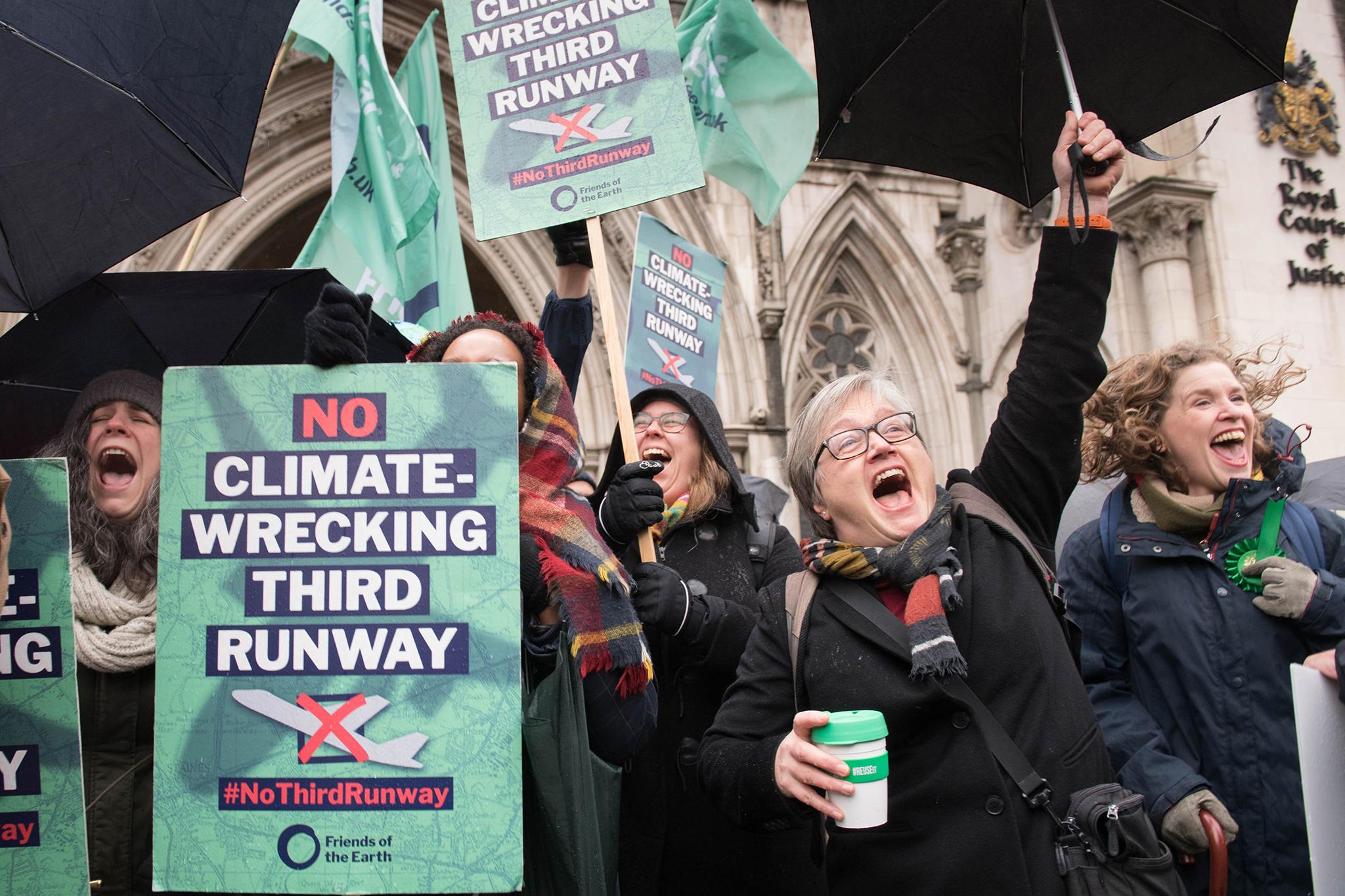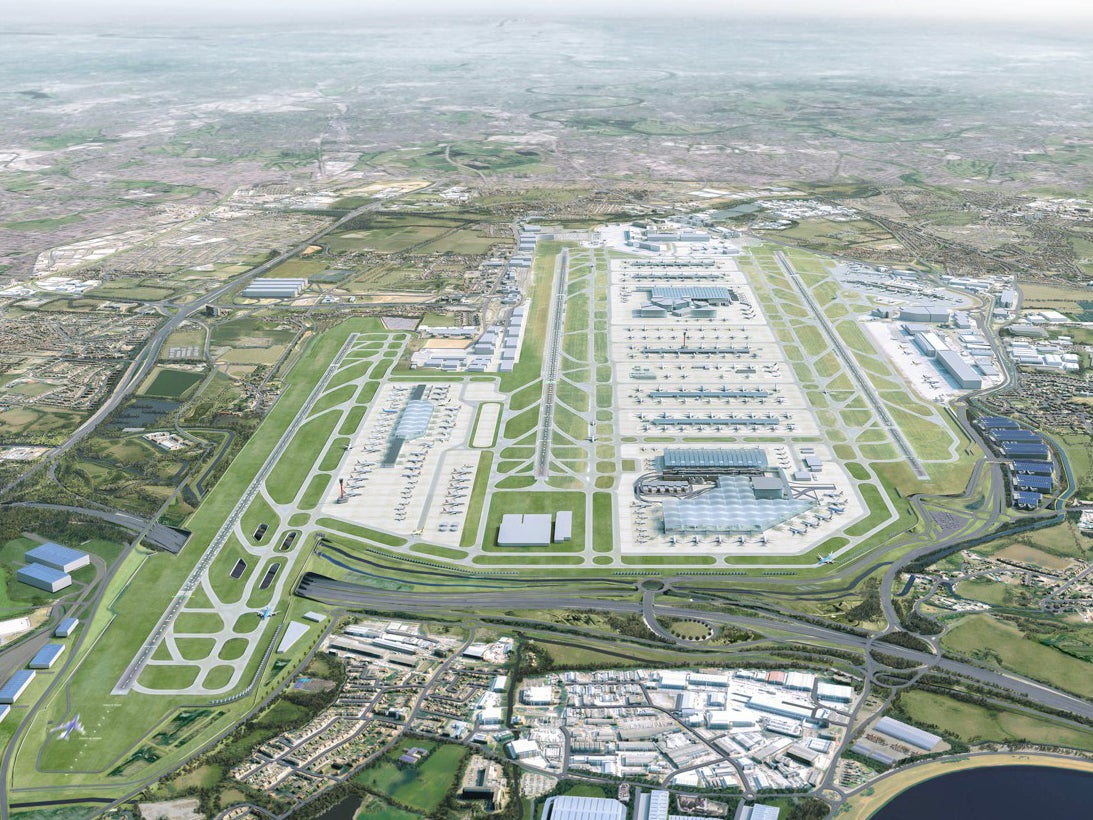The ruling on Heathrow’s third runway means UK business has changed forever
The eco-warriors are cock-a-hoop. This is a landmark, the most significant victory they’ve enjoyed for years, far more important than any amount of large-scale protest and disruption. Chris Blackhurst explains why


The reverberations of the appeal court ruling over Heathrow’s expansion are profound. Too right, say climate change activists who campaigned for the plans for the airport’s new runway to be scrapped. London’s skies will not be so crowded, air and noise pollution will not be so bad. Absolutely, say those who pushed for a larger Heathrow, maintaining that Britain’s economy will suffer, that the additional financial benefits the boost in passengers would bring will be lost. Both arguments are true. Both have a ripple effect that will go far and wide.
There is, though, a third impact, which has much deeper repercussions. The judges intervened and enforced climate change laws, finding the government, when it applied the airports’ policy, had not paid due heed to them. Suddenly, all those millions spent promoting the case for the third runway, the carefully orchestrated lobbying and advertising campaigns, were wasted.
There’s a new audience that demands to be taken into account – one that is not so easily influenced by political schmoozing, and smart posters and billboards. It’s possible to claim, as others are doing, that the courts must be brought to heel, that you can’t have a system where parliament votes to grow an airport, as it did, resoundingly, only to have an unelected judiciary saying otherwise.
But it was not the judges who enshrined the Climate Change Act in law, not the judges who signed the Paris Agreement on carbon controls. Indeed, the Court of Appeal made a point of saying it was not signalling “go” or “stop” to infrastructure projects. All it was doing, all it could do, was to apply the law as it stands.
The Heathrow ruling has created a mess, and it’s not the judges’ fault. Parliament wants the UK to be green, to be carbon neutral by 2050, but it also desires fillips to the national infrastructure. Fine, if the latter obeys the former. If not, forget it.
No wonder the eco-side is cock-a-hoop. This is a landmark, the most significant victory they’ve enjoyed for years, far more important than any amount of large-scale protest and disruption. They would say that without their demonstrations, MPs would not be so minded as to pass legislation on climate change. There’s some truth in that – but only some. The carbon targets were voted upon well before the activists’ most recent efforts.
Of course, MPs can say “to hell with it”, and tear up the UK’s new environmental laws, on the basis that economic growth must come first. But while that may be appealing to many in business, it’s not going to happen: the good of future generations must matter more. To reject that would be to represent the height of irresponsibility.

No, the climate change laws are here to stay, and therefore, they have to be obeyed. Where that leaves other major infrastructure and energy projects, among them HS2, remains to be seen. But not even the biggest schemes. Clever lawyers hired by opponents will doubtless relish the prospect of picking apart every detail, every line a proposal. Likewise, no self-respecting developer can move ahead without seeking legal advice. Now is a very good time to be an environmental lawyer.
It leaves business in a quandary. On Heathrow, the case for an additional runway was well made. It was not just the airport’s owners who were pushing for the extra capacity. Pressure was being brought to bear by major business organisations, by the leaders of some of our best-known corporates.
There was predictable kickback from the residents that would be affected by more flights. Among them were some prominent names. Leading politicians in west London also piled in. With parliament’s vote, however, the outcome seemed pretty certain. Of course, the environmentalists and local councils would make a stand. But their efforts looked likely to fail. All was set fair for a new runway.
Cue the judges and their momentous verdict. It’s a shuddering, jarring, decision – one that puts into sharp relief the direction of our economy, the government’s power to drive it, the ability of business to make its voice heard and to get its way, and the order of priorities for any organisation in the years ahead. Those three letters that have started to make themselves heard in boardrooms, ESG – environment, social and governance – have now acquired serious teeth.
Until the Heathrow finding, there was always the suspicion that business could pay lip service to what many viewed as the successor to those other three letters, CSR – corporate social responsibility – that were similarly largely ignored. Businesses galore had CSR policies, CSR appeared in countless annual reports, every board of any self-respecting enterprise had to have a CSR director. Often, though, it was the company secretary receiving another, unwanted, string to their bow. On many board agendas, CSR was an add-on, down the pecking order.
Not ESG. Not after the Court of Appeal ruling on Heathrow. In truth, though, not after parliament decided to tackle climate change and pass a statute to that effect. It looked good on paper. Unfortunately, few thought through what that would mean in practice. Now we know, and unless parliament begs to differ, UK business has changed forever.
Join our commenting forum
Join thought-provoking conversations, follow other Independent readers and see their replies
Comments